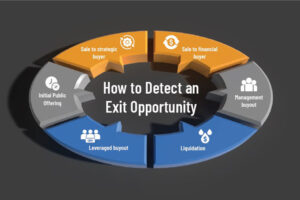aims to protect the clients of the financial service providers as well as to set comparable conditions for the provision of financial services offered by the different providers, and thereby contribute to strengthening the reputation and competitiveness of the Swiss financial place.
It mainly governs the provision of financial services as well as the distribution of securities and financial instruments. It establishes a bridge between European law and Swiss law by making the latter euro-compatible.
The Financial Institutions Act (LEFin)
sets the requirements governing the activity of financial institutions and defines the conditions under which the various actors in this field of activity are subject to the exercise of their activity.. Its purpose is to protect investors and clients of financial institutions and to ensure the smooth functioning of the Swiss financial market. The financial institutions concerned by this law, whatever their legal form, are the following:
- wealth managers (Article 17, paragraph 1);
- trustees (Article 17, paragraph 2);
- managers of collective assets (section 24);
- fund management (Article 32); e. Securities firms (Article 41)
The New Legislation comes into force on January 1st, 2020.
It should be noted that the main novelty concerns Trustees and independent asset managers administering assets on behalf of clients
On the other hand, banks, fund managers, pension funds or any other regulated activity as well as lawyers and notaries are exempt. One could legitimately ask why?
It seems that, once again, FINMA has given in to the lobbying of banks that wants to eradicate independent wealth managers and private bankers who have nevertheless made the excellent reputation of our financial center.
The Wealth Manager Activity
The wealth manager activity is defined by the following criteria:
- The asset manager exercises as agent;
- He carries out his mandate in a professional capacity, in other words: – as an independent economic activity in order to obtain a regular income; – with overall gross proceeds of more than CHF 50,000 per year; – establishing business relationships with more than 20 contractors per year;
He has power of disposal in the name and on behalf of the client of indefinite duration on assets whose amount exceeds CHF 5’000’000 at a given time or whose annual transaction volume is greater than CHF 2 million relates to assets defined as acquisition or disposal of financial instruments; receipt and transmission of orders relating to financial instruments; management of financial instruments; personalized advice on trading in financial instruments.
Management must be carried out on the basis of a written power of attorney.
The wealth manager manages individual or private portfolios. He buys or sells securities for his clients on their accounts.
The asset manager has the obligation to deposit separately for each client the assets entrusted to him with a bank or a securities company within the meaning of the LEFin.
The legal form for the exercise of a wealth management activity may be that of a sole proprietorship, a simple company, a partnership or even capital.
The Exercise Authorization as a Wealth Manager
The wealth managers as defined above are obliged to apply for authorization to exercise this activity with FINMA prior to their registration in the Commercial Register.
Wealth managers carrying out an activity prior to the entry into force of the law on 1 January 2020 are required to announce themselves to FINMA within 6 months, ie by 30 June 2020 at the latest. three years from entry into force to apply for authorization to practice.
However, they must, as soon as the law comes into force, meet the requirements of the law. They can therefore continue their activity until their authorization request is processed by the authority. The only condition during this period will be to maintain their affiliation with a self-regulatory AML body.
The Exercise of the Wealth Manager Activity
1. Organization
The asset manager must have an adequate organization in such a way that he can fulfill his legal obligations. This organization must match the risk and complexity of the operations performed. The notion of adequate organization provided for by law enshrines the principle of proportionality. In other words, the organization set up by the asset manager must enable him to comply with the legal requirements concerning the financial markets.
The institution’s internal control system must be effective. The company must have defined the organizational principles in written documentation. It must have qualified staff with the necessary skills in its field of activity. FINMA may require asset managers to set up a body responsible for senior management, oversight and control, the majority of whom are not members of management. These additional conditions may be requested if the company generates a turnover of over 5 million and the type of activity requires it.
2. Qualified Management
A qualified officer is any person who meets the requirements for training and work experience according to the following criteria:
- 5 years professional experience in wealth management for third parties;
- Training in wealth management for others.
The management of a wealth manager must consist of at least two qualified persons, subject to the provision of evidence that one person is sufficient to continue the operation of the business.
3. Guarantee of an Irreproachable Activity
The administrators of the financial institution must present all the guarantees of an irreproachable activity. They must have a good reputation and have the professional qualifications required for their duties.
This requirement also applies to holders of qualifying holdings, ie at least 10% of the capital of the financial institution, who must also enjoy a good reputation and ensure that their influence is not exercised. at the expense of a sound and prudent management of the establishment.
4. Equity Requirements
The legal standards also provide for capital and equity requirements. The minimum capital of a wealth manager must be CHF 100,000 and must be fully paid up in cash. The said capital must be maintained permanently.
As regards own funds, these must constantly rise to at least one quarter of the fixed costs of the last annual accounts up to a total of CHF 10 million.
Example: if all the costs of the financial institution (personnel costs, operating expenses, depreciation, charges due to value adjustments) amount to CHF 1 million, the net capital requirement will rise to at least CHF 250k.
Included in equity are share capital, reserves, profit carried forward, profit for the year after deducting the foreseeable portion of the profits distributed as well as the unrealized reserves.
5. Mediation
The wealth manager must be affiliated with a mediation body the day he starts his activity. This new body was instituted directly by the LSFin. Its purpose is to settle disputes between the financial service provider and its client in a mediation process.
6. Surveillance body
Asset managers are subject to supervision by FINMA. This surveillance is not carried out directly by FINMA but by an O.S. in professional jargon, which is under the authorization of FINMA.
If the supervisory body does not carry out the prudential audit itself, the asset manager will be delegated to an audit firm with approvals for this type of activity.
In order for the asset manager to be approved, it is imperative that the effective management of this financial institution is in Switzerland. The place of residence of the persons in charge of the management of this establishment is taken into account. This place of residence must enable them to exercise effective management of the business.
8. Delegation of Tasks
With regard to the delegation of tasks, this should only concern activities that are not part of the core tasks of the management of the financial institution. This delegation of tasks must not affect the coherence of the organization.
In other words, the asset manager must have the necessary human resources and technical knowledge to ensure the various choices, instructions, monitoring and control.







